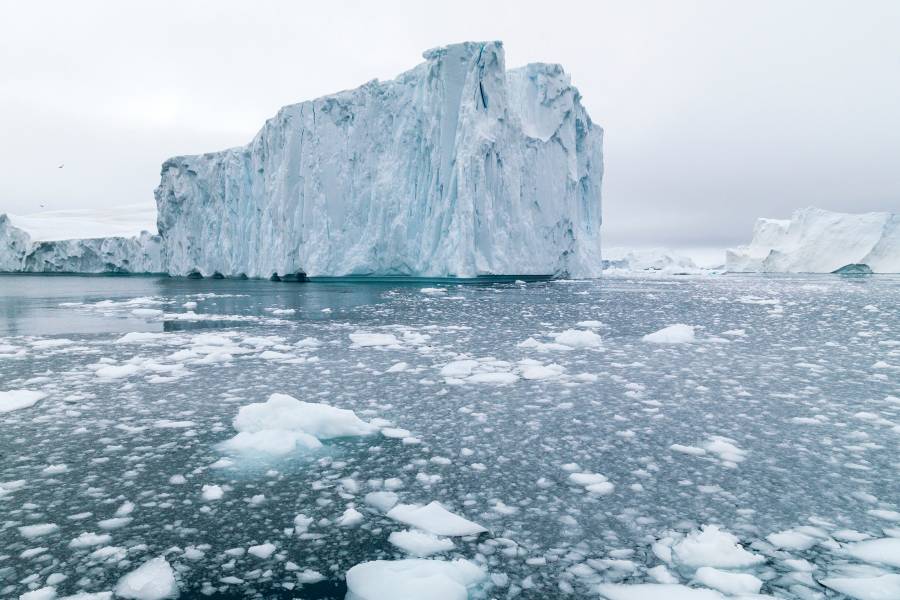Balancing the scales: Are milder winters worth climate change?
As the planet heats up, our glaciers grow more and more at risk.
I’m sure we’ve all heard this at least once this winter. I’ve probably said it a couple of times myself—stretching out my non-winter-coat-clad arms as proof, gesturing to my lack of snow boots, generally waving my arms around at the not-very-snowy sky:
“It’s so warm! And it’s already December!”
This past winter was definitely one of the milder winters we’ve had, at least in Ontario. Apart from the winter storm that blew across the country around Christmas, I, like many others, was pleasantly surprised by the winter we ended up having. My initial disappointment over not having a white Christmas was abated by the fact that I was strolling around downtown in a fall jacket, not having to trade my white sneakers for snow boots and thermal socks. “It just makes commuting so much easier,” I rationalized to myself. I managed to fool myself into thinking that this was just fine. Obviously, it’s due to climate change, but maybe in the short-term, it’s worth it.
And then I read the pitch for this article, and that illusion melted.
Earlier this month, the Washington Post published an article on the fate of glaciers if Earth’s temperature continues to rise. The article detailed a study that found that even if the world meets the extremely lofty goal of limiting warming to 1.5 degrees Celsius above pre-industrial levels, almost half of the world’s glaciers will have melted by the year 2100.
This is assuming that we can meet this target; the study’s projections found that, factoring in the goals made in the Paris Agreements and reaffirmed at the UN Climate Change Conference in Glasgow (COP26), the global mean temperature is likely to increase by 2.7 degrees Celsius. This would lead to an even higher number of glaciers being lost worldwide, and “the near-complete deglaciation of entire regions including Central Europe, Western Canada and US, and New Zealand.”
The melting of the glaciers will then lead to a rise in sea levels, as the melt-off flows into the oceans. Some of the negative impacts of rising sea levels were seen last year, with huge portions of South Asia flooded and millions displaced.
Now we look closer to home. Here at the University of Toronto Mississauga, it’s probably easy, for now, to turn your gaze and look only at the positives, the silver linings of global warming. An umbrella instead of a shovel in December—that’s not bad!
But of course, it is.
Even if you could look past the millions dead and displaced in coastal regions due to rising sea levels, the millions of lives lost due to unprecedented regional heatwaves, and the diseases that are allowed to fester as the rising temperatures means mosquito season lasts longer than it used to. Even if you narrow your gaze and look at just Mississauga, or your neighbourhood, does it look the way it used to? Is it still worth it?
Did you see kids playing in the piles of snow this winter, like the winters of 10, 15 years ago? Do you remember plopping down in the snow, or watching it fall, and the peacefulness that came with that?
Look further back, to the summer. Did you see kids running around, playing outside? I remember spending my summers as a kid doing just that. This past summer, I remember quiet streets and heat warnings. Maybe a mild winter is worth that trade-off.
Extend the hypothetical and say you can also ignore the daily news articles about climate change and how lives worldwide are being affected, such as the beginning of climate refugees. Ignore any friends or family that you may have abroad when they tell you about the heatwaves they’re facing, or the floods. Ignore global communities as they speak out about climate-related food shortages and droughts and avoid thinking about how the world may look for your children, or your grandchildren. Is it worth it then?
For this article, I was asked to give my personal answer to the question, “Is a milder winter worth losing half of our glaciers, and other climate change-related effects?” To that I say, what other possible answer could there be besides absolutely not.

